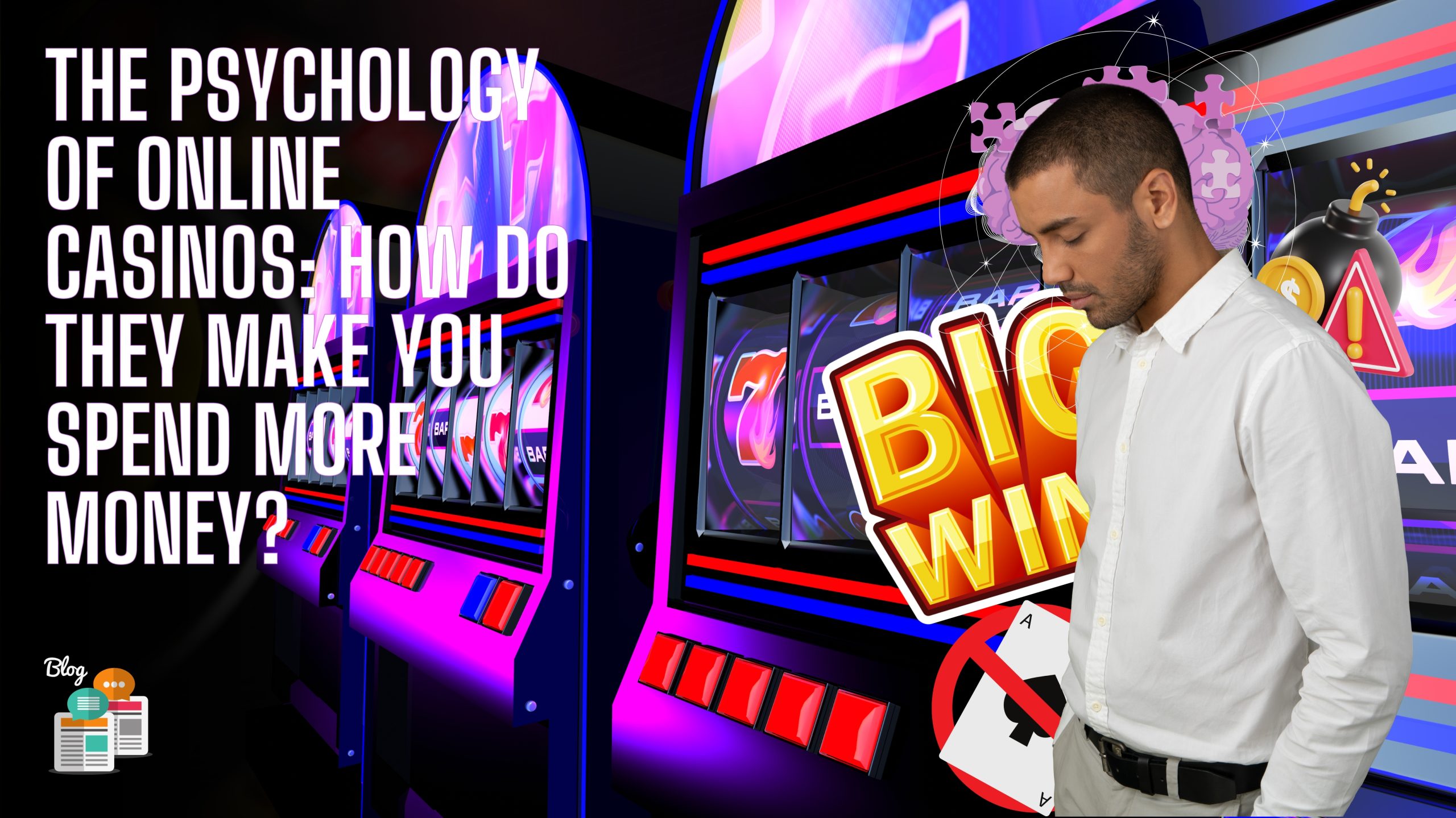
The Psychology of Online Casinos: How Do They Make You Spend More Money?
Online casinos have rapidly grown into a multi-billion dollar industry, with millions of players worldwide. Gambling has become a seemingly convenient hobby, with potentially big wins accessible only by a few clicks.
However, beyond these exciting games lies a complex array of psychological tactics, designed to keep the users hooked. Understanding these principles used by casinos offers valuable insights into the behavioral mechanisms encouraging the players to continue gambling.
This article presents an introduction to psychological principles used by online casinos, ways of manipulating emotions and behaviors, and the implications of these tactics on gambler’s spending habits.
Psychological Principles and Theories Used by Online Casinos
Lachlan Brown – Expert & Psychologist
Variable Ratio Schedule of Rewards
Operant conditioning is a learning method that uses rewards or punishments to strengthen a certain behavior. Gambling operates on a variable ratio schedule of rewards, meaning a reward occurs after an unpredictable number of trials. This unpredictability contributes to continued play by creating an illusion of large chances to win after a failed trial.
Loss Aversion
Loss aversion is a tendency where loss is perceived as more severe than an equivalent gain. An experiment conducted by Kahneman and Tversky shows loss aversion’s impact on our decision-making. Firstly, they asked people to imagine they had been given 1000 ILS (the Israeli currency). Participants were asked to choose between either taking a gamble with a 50% chance to win 1000 ILS or a 100% chance to win 500 ILS. In this case, 84% of the participants chose the second option – a certain win.When participants were asked to choose between taking a gamble with a 50% chance to lose 1000 ILS or a 100% chance to lose 500 ILS, 69% of people chose to take a gamble. This demonstrates how willing we are to take a risk to avoid unpleasantness.
In gambling, people often keep playing to compensate and return previous losses by potentially winning.
Sunk Cost Fallacy
Closely tied to the previously mentioned loss aversion, the sunk cost fallacy is a tendency to follow through with something we have already invested in, even when giving up is a more rational choice. This keeps people hooked in a loop of spending more and more money that is not about to return.
Examples of Psychological Tactics Used by Online Casinos
While traditional casinos often employ strategies like lack of clocks and natural light, memorable scents, and stimulating lights and sounds, online casinos rely largely on visual and audible senses and psychological tactics. These are often hiding in plain sight, but they often pass without much consideration.
Casino Layouts
A study has found that people read digital content in F shaped pattern, meaning that we probably pay most of our attention to the top left part of our screen. Using this knowledge, casino web pages, and applications often provide information that calls to action in the top left corner.These could be promotions, such as limited bonuses or benefits for new users, or progressive jackpot amounts.
Playing with Colors
Most online casino brands choose a warm tone palette, often centering on the color red. Companies in different industries use this strategy since warmer tones are associated with positive emotions. For example, red combined with yellow evokes a “stop and see” reaction, while green is often a cue for proceeding.
Conversely, it’s rare to see any of the chilly hues, such as blue, as these are more involved with sadness or melancholy.
Marketing
Attracting new players to the world of online gambling is dependent on multiple different marketing strategies. Among these, social media marketing is crucial, and it is often done by affiliate marketing.
Casinos hire media influencers to promote their companies, and it is not difficult to understand why this works. Influencers already have their established audiences, who trust the words of the person they are following. Seeing someone successfully invest in gambling can easily influence our thought process and make us believe this to be a secure way of obtaining a fortune.
Strategies Employed by Online Casinos to Manipulate Players’ Emotions and Behaviors
An average casino bet has only between 35% and 50% chance of winning. Considering this, it’s easy to imagine that the number of people who profited from online casinos is fairly low. Knowing this, you may wonder how it’s possible for this industry to keep growing yearly.
We have already talked about psychological principles using wins and losses. These are all based on our physiological reactions: anticipation and rewards produce feel-good hormones, which shape our behaviors. The possibility of winning is what pushes people into an endless cycle of investing and feeling the thrill.
Moreover, most online casinos use some form of progressing or leveling strategies. This system effectively works, because people value the things they own. Therefore, a value is ascribed to these things, which, as you may imagine, leads one into the sunk cost fallacy.
Social competition also plays a big role. People are competitive, and seeing someone successful creates a belief that you too can undeniably win. This is why casinos often utilize leaderboards – not only do they recognize player accomplishments, but they also cultivate a sense of rivalry.
Gamblers are tricked by the illusion of control. Casinos are employing gamification strategies to incorporate this illusion, by making the player think that his skills are relevant to the outcome, even when they are not, and the outcome is based purely on chance. Not only does this shape one’s emotions, but it can make the gaming experience even more personally relevant for the player, leading to prolonged gaming sessions and even deeper commitment.
Implications of psychological tactics on players’ habits and overall gaming experience
All of the above-mentioned psychological tactics can influence the course of one’s relationship with the habit of gambling. These could lead to the following:
- Increased spending.
- Financial problems and potential bankruptcy.
- Enhanced engagement in online casinos.
- Potential for developing a gambling addiction.
- Problems on the interpersonal plan: drawing a household into debt, family problems, less engagement with friends.
Conclusion
With the online gambling industry’s continued growth, it is crucial to recognize discussed influences and their potential to shape the minds of players. Awareness of these tactics can lead to more informed decisions and healthier gaming habits. The psychology of online casinos is inevitably oriented towards profit, and online casinos will take advantage of a variety of psychological laws if you’re not careful enough.






